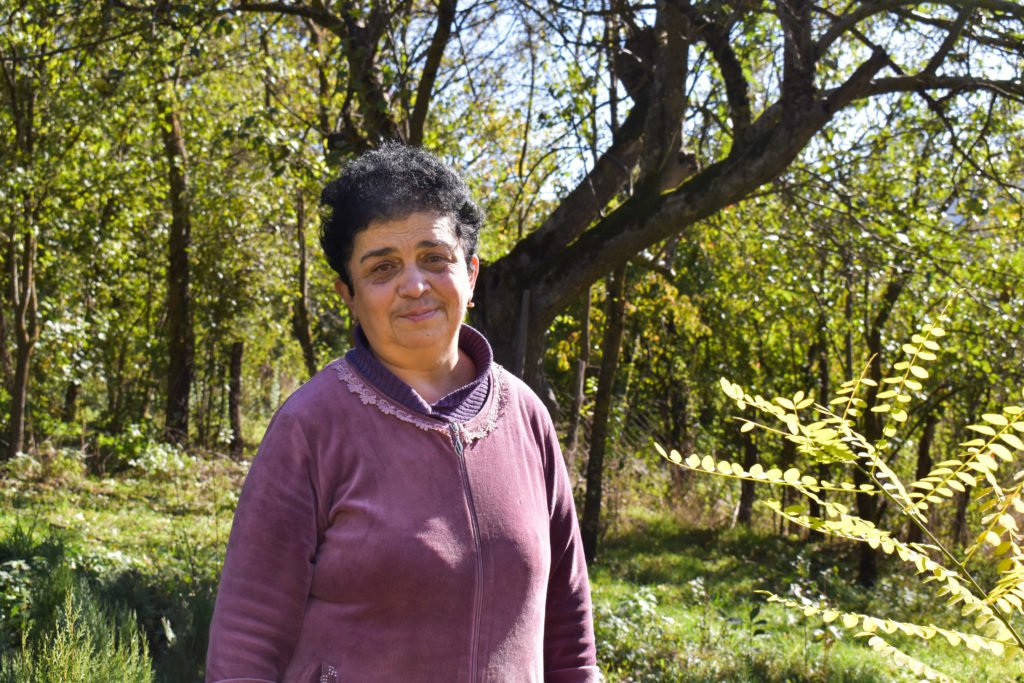For 18 years, the Armenia Tree Project (ATP) has been empowering families in rural Armenia through its Backyard Nursery Program (BYN). Founded in 2004, this program provides families the opportunity to develop an income at home, while simultaneously growing the tree yield that ATP requires for its planting initiatives. In doing so, ATP is helping to sustain both the environment and provide economic stability in remote villages.
ATP provides farmers with the necessary resources to grow and care for seeds and cuttings and provides support, mentoring and monitors the progress of each backyard nursery. Once the trees are harvested, ATP purchases the trees from the families.
Since its creation, the BYN program has given participants increasing financial stability, preventing them from being forced to leave their homes to find work in other countries. In addition to the economic benefits to some of the most underserved communities, the overall tree yield in such parts of Armenia has grown tremendously, positively contributing to the environmental development of Armenia’s ecological sustainability. ATP chose to develop this program in remote villages of Armenia to build economic development for families who receive minimum income from month to month, helping to stabilize remote border villages.
It’s not surprising that over the course of 18 years, the popularity of this program has grown. ATP’s Backyard Nursery Micro-Enterprise project continues to grow, as the number of families who see the success of their neighbors are eager and willing to join the program.
This program has grown by 85 percent since 2004, serving families in 12 different villages, located in the Tavush, Lori and Shirak provinces of Armenia.
In 2022, 23 nursery participants from the communities of Margahovit and Aghavnavank collectively distributed around 41,000 trees and shrubs. These trees have been planted by the ATP’s Forestry Division at the afforestation sites in the villages of Urasar, Lernanist, Mets Sariar and Lernakert. Families that participate in the BYN Program are contributing to sustainable forest management in their communities and earning a livelihood that enables them to stay in their homeland; in doing so, they are ensuring a future for their children and for the nation.

“Although it’s been a very challenging year for me because my husband passed away, I still found strength in me to continue tending the little saplings sown by him,” said Karine, a BYN participant from the village of Aghavnavank in the region of Tavush. She is honoring her husband’s legacy by continuing his work and contributing to Armenia’s environmental development. “My desire is that the project could expand and recruit more people in the years to come,” she continued.
Karine is one of many individuals positively impacted by the BYN program. This program not only provides unique economic opportunities for families in underdeveloped parts of Armenia but also contributes greatly toward ATP’s reforestation efforts in Armenia. For those interested in partnering with us in these critical efforts, ATP has opportunities for sponsorship. A donation of $2,000 for two years provides farmers with up to 1,500 seedlings per nursery which will be grown over the course of two to three years, ultimately producing an expected 85 percent tree yield. As the BYN Program grows, ATP will be able to support and stabilize villages along the border regions in Armenia, which is necessary in light of recent geopolitical tensions. These gifts allow ATP to expand the BYN program into Armenia along border villages that have been impacted by the recent geopolitical tensions.
We could not do this important work without the continuous support from our donors. Because of your investment and support, ATP was able to show the value of this work and secure additional funding from the European Union’s “EU4Environment: Green Community, Resilient Future” grant program. This grant has helped ATP expand the scope of this program significantly and currently. There are currently 150 families engaged in the BYN program.


Be the first to comment